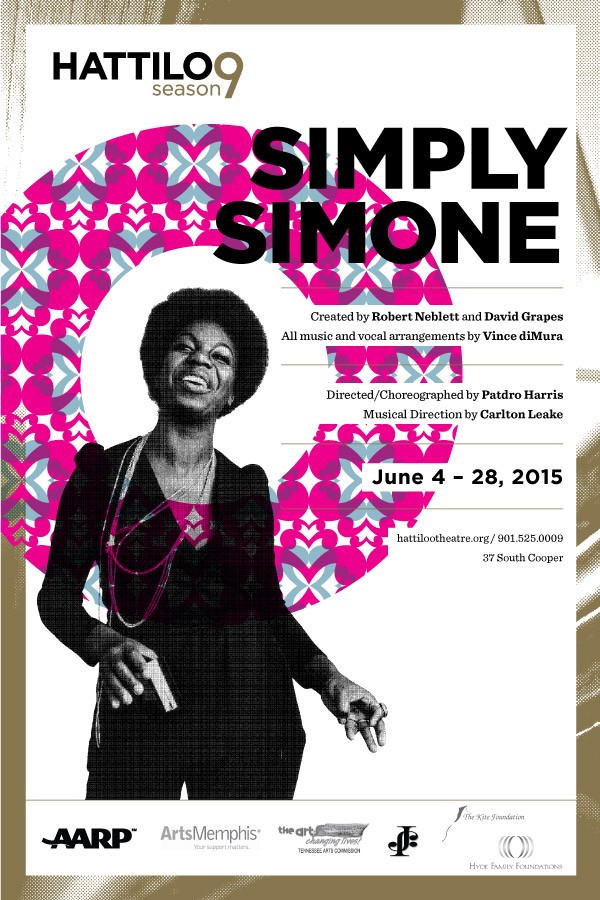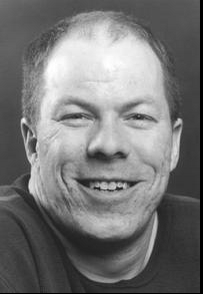
I’ve got to be honest. Following the Charleston church shooting I’m not sure how the Hattiloo‘s cast for Simply Simone can make it through Billie Holiday’s “Strange Fruit.” That portion of the show was already a gut punch last week. By all accounts everybody’s holding up, and audiences are really responding to the most relevant musical revue you’re likely to see any time in the near future.
Singer, classically trained pianist, bon vivant, and civil rights icon Nina Simone was a complicated and compelling character. Although it’s primarily a revue, running down the artist’s catalog, the Hattiloo’s production of Simply Simone never shies away from complexity. Robert Neblett, who co-created the piece with David Grapes and Vince Dimura was in town last week. Intermission Impossible caught up with him to ask what he thought about Memphis, The Hattiloo, and, of course, Nina Simone.
Intermission Impossible. How was your time in Memphis?
Robert Neblett: It was brief. Would have liked to have spent more time. It was really a quick turnaround trip so I didn’t get to see much of Memphis other than the hotel, the theater, and a late night diner. We did go to the Peabody and see the ducks Saturday morning.
Those are the parts that interest me. Especially the parts inside the theater. How did you like the Hattiloo’s take on your show?
I was coming into this a little blind. A friend of mine, Kerry Hayes, lives in Memphis. He does a lot of activism, he and his wife. And he worked for my theatre company in St. Louis when I had it 10 or so years ago. He actually told me when they were starting Hattiloo. They were starting it at about the time I was writing Simply Simone. So I contacted them a long time ago about doing this script. In the first couple of years it was not something that they thought would sell. So it was nice to bring that full circle. I don’t even know if the Artistic Director remembers that.
So you really didn’t know what to expect.
Yes. That was pretty much all I knew about Hattiloo. Then when I found out that they were doing the show. I’m like, “I’m just four hours away and that would be great!” I’d have been there on opening night but a friend was getting married and I had to choose.

Robert Neblett
Probably the correct choice.
But I was very impressed with this little theater district that has emerged. I’ve known about Playhouse on the Square for years because it’s known around the country. I was really glad to see that there seems to be such a nice amount of synergy there. I hate to use that word, but I’m using it in the real sense. So many cultural organizations in that one location is just great.
Did you like the show?
You know, it’s the first time I’ve seen the show live. I’ve seen video from past productions. I didn’t even see the first production. I did all my work on that show by telecommuting. So it was a real treat to see the live energy. Particularly the emotional journey of the piece. That was important to me. For all intents and purposes the show is a revue. It’s not technically a full out musical. But I feel like the piece has a lot of drama. And one of the things I’ve felt was missing in one of the readings I saw, a lot of times actors and directors will focus on the music, but they gloss over scenes in between. But I also think the musical numbers don’t land correctly if you don’t act the whole piece. That’s one of the things I thought the actors and director did such a good job with. I couldn’t have expected “Strange Fruit” to be nearly as effective as it was.
Were you a Nina Simone fan when you started working on the show?
All I knew besides knowing some of her music was that she’d been involved with the Black Panthers.
Well, of course that’s what you’d know. That’s part of the dominant media narrative, right? That she was radicalized.
I read autobiographical tribute pieces and amassed a huge collection of recordings. As I listened to her recordings, especially her live recordings, I started to hear her voice. I am indebted to her live recordings. Because she talks so much during her songs and she tells stories and provides commentary. There are two moments in Simply Simone that I took directly from recordings. She starts to sing “My Father,” in the second act. And then she stops. And she says, “I don’t want to sing this song anymore. My father never promised me that we would live in France. My father had never seen France.” And she just stops. Not even halfway through the first verse.
Those live recordings are great. And the concert clips on YouTube.
In “Mississippi Goddam” she gives a running narration. That quote. “This is a show tune but the show hasn’t been written for it yet yet,” she says. Then she starts the second verse saying, “You thought I was kidding, didn’t you?” And she has this white audience in the palm of her hand while she’s indicting them. Something that’s interesting, and a source of tension for her, is that the people who were buying her tickets were the people oppressing her brothers and sisters in the streets. Lorraine and Langston were always on her case to use her music for something more than just making money.
Talking Nina Simone with ‘Simply Simone’ Co-Creator Robert Neblett
It’s strange. She’s known, of course, and she’s so influential. But I think she only had one top 20 hit in America so, for being known, she’s also obscure. That’s a contradiction, I know, but you know what I mean?
I think that’s true. And honestly, recent interest in her has come out of things like commercials. “My Baby Just Cares for Me,” was in a car commercial then, “Feeling Good” was in a car commercial. And then it was covered by George Michael. There were years when you couldn’t get through an episode of American Idol without hearing that song.
The one thing I regret about your show is just how relevant it is. So much of the tragedy sounds like it might have come out of yesterday’s news.
I would agree. Like she says in “Mississippi Goddam”, “people will say it’s a communist plot.” She goes through this list of things—this list of reasons why, if we call people out for all these things they’re doing— people are just going to dismiss it. Call you a communist. And she kind of goes through this list. And it’s exactly what happens every day in the press.
Talking Nina Simone with ‘Simply Simone’ Co-Creator Robert Neblett (2)